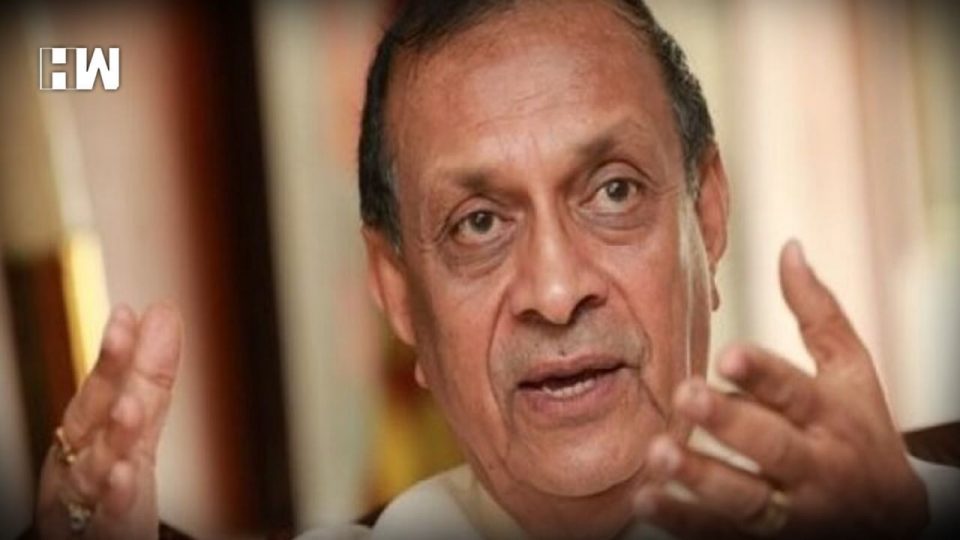Colombo | Sri Lankan Speaker Karu Jayasuriya Monday slammed President Maithripala Sirisena’s “unconstitutional and undemocratic” actions to sack Prime Minister Ranil Wickremesinghe and suspend Parliament, saying he will not recognise Mahinda Rajapaksa as the new premier unless he wins a floor test.
The tough statement from Jayasuriya came after Sirisena announced on Sunday that parliament would reconvene on November 14, a week later than he had promised.
The Speaker said Sirisena had gone back on previous commitments to recall parliament on November 7.
In the statement released on Monday, Jayasuriya said 116 Members of Parliament have submitted a petition to him stating that the changes made in Parliament recently by President Sirisena are “unconstitutional and undemocratic.”
Their call for Parliament to be summoned immediately was also “extremely reasonable”, he said.
“In the name of justice and fair play I have to declare my position to the world that when a majority has pointed out that rights of the MPs have been usurped by preventing the lawful convening of Parliament,” Jayasuriya said.
“A majority in parliament has requested that all changes made have been unconstitutional and against the traditions. They have urged me to recognise the status quo which prevailed prior to these changes.
“As such I have to recognise the status quo which prevailed before until the new party would be able to prove their majority,” Jayasuriya said, making it clear that he wants a parliamentary floor test.
As a result, Rajapaksa will not be given the Prime Minister seat in Parliament as the current government members will need to sit in the opposition seats, reports said.
Sirisena suspended parliamentary proceedings until November 16 after abruptly firing Prime Minister Wickremesinghe and replacing him with Rajapaksa, a controversial former president, on October 26.
The Speaker had expected parliament to reconvene on November 7. However, Sirisena Sunday issued a notice to reconvene Parliament on November 14.
Jayasuriya said he had made several requests for Parliament to be reconvened early in order to resolve the political crisis.
The civil society organisations have demanded that Jayasuriya re-summon parliament on his own. Jayasuriya, however, refused to do so saying he was powerless unless the president consented.
The decision announced last night by President Sirisena to summon the Parliament two days ahead of its scheduled opening won’t lead to resolving of the constitutional crisis, ousted prime minister Wickremesinghe’s United National Party (UNP) senior Vajira Abeywardena said on Monday.
“We can’t treat November 14 as the date on which we can settle this issue. The law has been violated. They have delayed the date for reconvening parliament so that they could buy over MPs. The public must protest the way the MPs are being brought for money,” Abeywardena said.
Wickremesinghe’s UNP on Monday said Sirisena’s decision to summon parliament on November 14 will not lead to the resolving of the constitutional crisis.
Analysts say Sirisena’s move to suspend parliament to engineer defections from the UNP and its allies appears to have succeeded.
New prime minister Rajapaksa’s parliamentary strength has now been bolstered to 105 from 96 when the crisis began.
The UNP has lost eight of its legislators while one member from the main Tamil party TNA has defected. Rajapaksa needs 113 to prove his majority in the 225-member House.
Wickremesinghe who branded Sirisena’s October 26 action to sack him a constitutional coup maintains that he holds majority. The UNP has handed over a motion of no trust against Rajapaksa.
Meanwhile, both parties organised public protests on Monday. Thousands of supporters of Rajapaksa headed for the capital to rally in support of his nomination as the prime minister.
The political crisis in Sri Lanka began after Sirisena’s broader front United People’s Freedom Alliance (UPFA) announced that it has decided to quit the unity government with Wickremesinghe’s UNP.
The unity government was formed in 2015 when Sirisena was elected President with Wickremesinghe’s support, ending a nearly decade-long rule by Rajapaksa.
As an independent media platform, we do not take advertisements from governments and corporate houses. It is you, our readers, who have supported us on our journey to do honest and unbiased journalism. Please contribute, so that we can continue to do the same in future.

